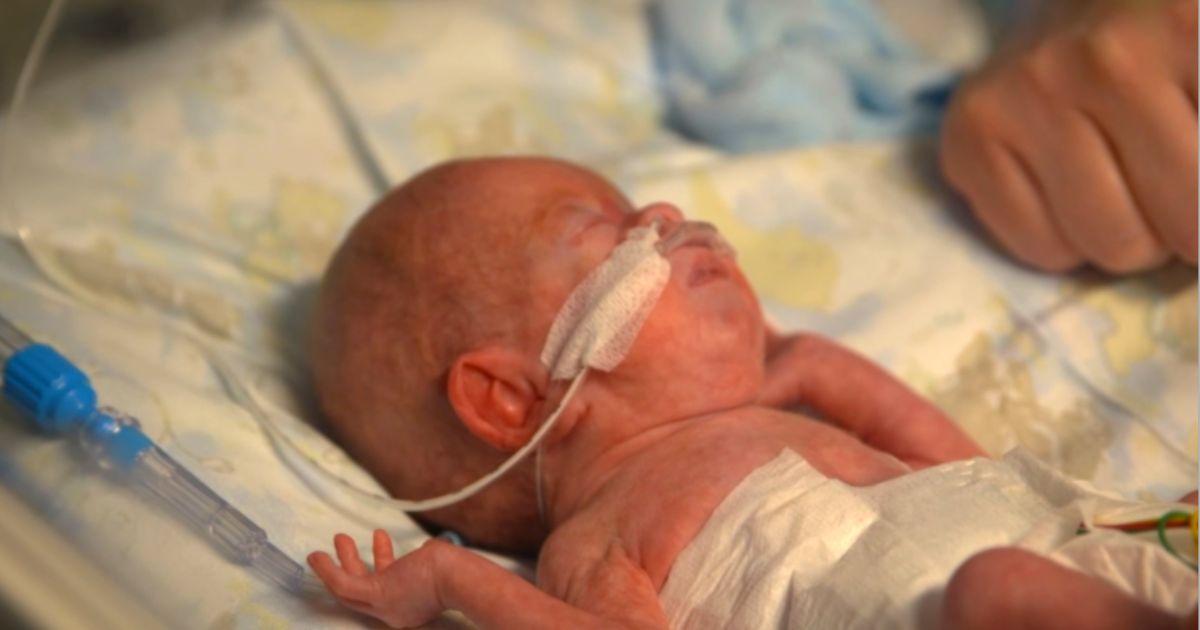Baby Alfie was born prematurely at 27 weeks, weighing just 640 grams at birth. His mum, Monica, was not expecting him for another three months but had to undergo an emergency C-section as Alfie showed signs of distress in the womb.
Alfie’s lungs and other vital organs were not yet ready to survive outside the womb. He had to be kept on ventilator support at the Neonatal Intensive Care Unit at University Hospital Wishaw, Scotland. His father, Gary, said that it was “a beautiful time but it is worrying as well because you don’t know what lies ahead”. Monica said that they were taking it “one day at a time”.
Soon after his birth, Alfie’s lungs collapsed and his heart rate dropped to a dangerously low level. His medical team were battling to keep him alive. Alfie’s parents were called to his bedside to say their goodbyes as the medical team thought they were not going to be able to resuscitate him. Luckily, the team was able to bring his heart rate back to normal levels but Alfie’s condition remained unstable and he required a lot of oxygen and ventilator support.
At 23 days, Alfie had to be put on steroids, usually used as a last resort. Thankfully, after four days of this treatment, his condition started to improve and he began to oxygenate really well. Monica said “it [steroids] seems to have worked a miracle…we thought that we had lost him three days ago…so I am cautiously optimistic about it all”.
At 34 days, Alfie developed an infection in his stomach. The struggle to fight this infection increased the pressure on his lungs. As a result, he had to be put back on ventilator support and his condition became critical. Monica and Gary were placed on a 24-hour watch by his bedside. He was initially not given steroids to strengthen his lungs as the antibiotics given to treat his infection made him weak.
However, Alfie’s medical team decided to take the risk and start his steroid treatment in a bid to improve his condition. At 8 weeks old and after 7 days of life-saving steroids, Alfie’s condition improved and his breathing tube could be removed. His little lungs continued to become stronger. After 60 days in the NICU, baby Alfie was finally infection free.
Improving outcomes for premature babies
A study, ‘Mortality, In-Hospital Morbidity, Care Practices, and 2-Year Outcomes for Extremely Preterm Infants in the US, 2013-2018’, by Dr Edward F Bell of the University of Iowa, found that from 2013 to 2018, with infants born between 22 and 28 weeks gestation, “survival to discharge occurred in 78.3% and was significantly improved compared with a historical rate of 76.0% among infants born in 2008-2012”.
The study, which took place between 2013 and 2018, assessed 10,877 infants born between 22 and 28 weeks gestation in 19 academic medical centres across the US.
This means that almost four out of five extremely prematurely-born babies survived and were able to be assessed at 22-26 months corrected age (22-26 months from their due date) for a number of health and functional outcomes.
Right To Life UK spokesperson Catherine Robinson said “Premature babies are a persistent challenge to supporters of abortion because the humanity of the baby is on clear display. In the UK, sadly, it remains legal to abort a baby up to birth if that baby has a disability”.











